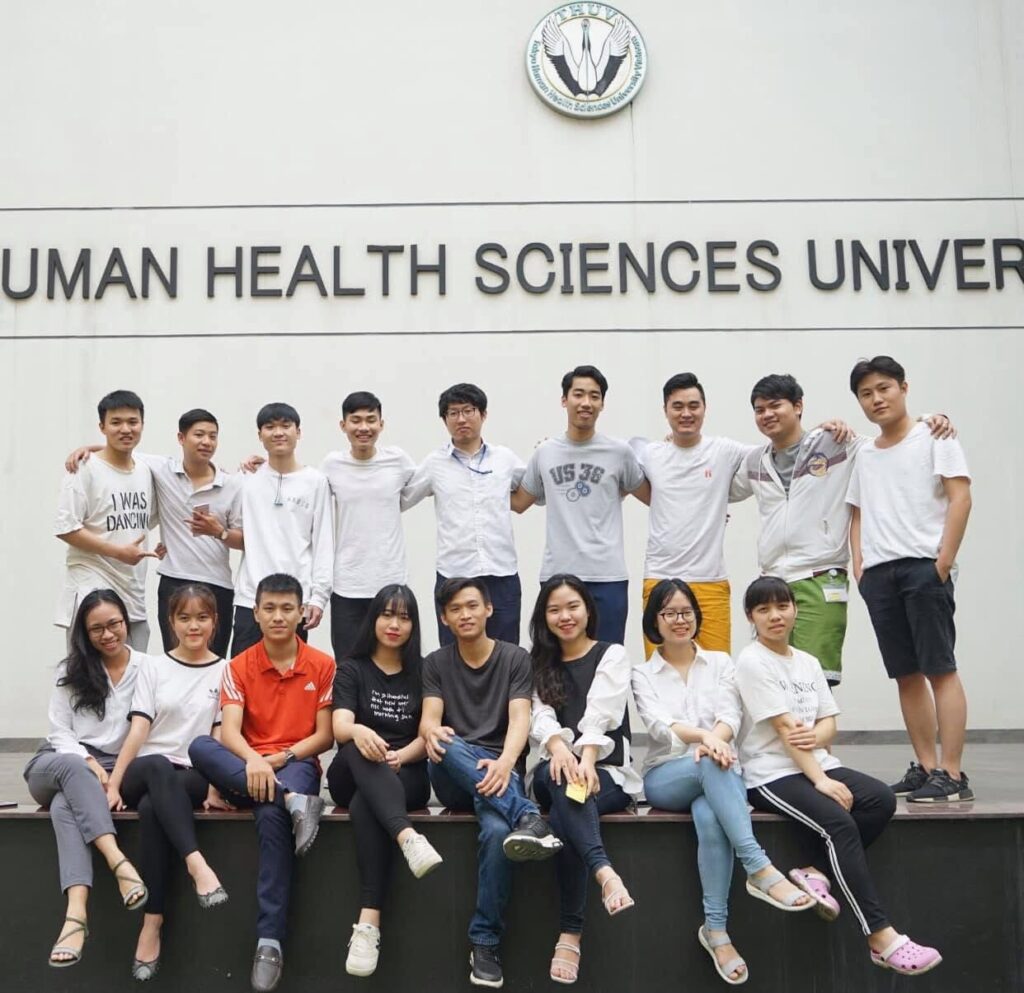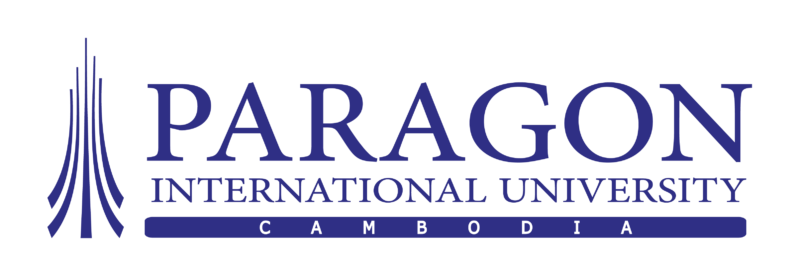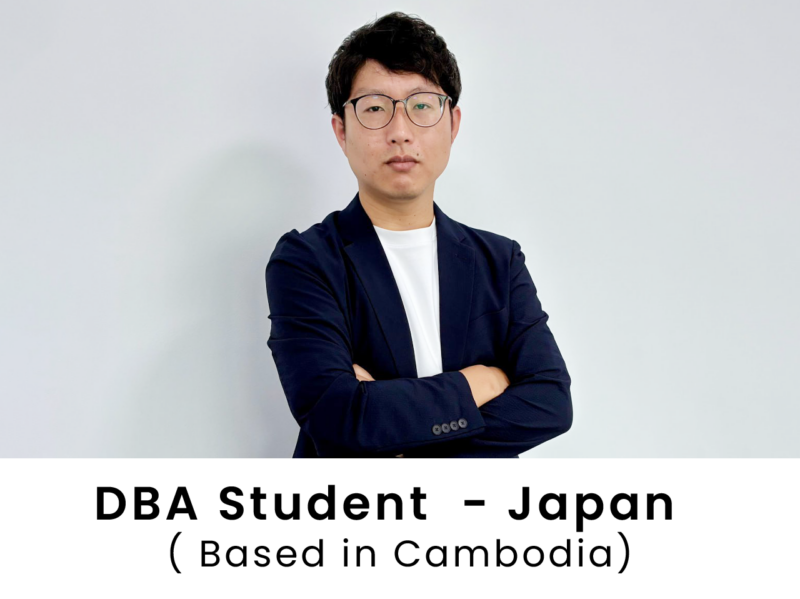Our Next DBA Intakes – November & March!
Paragon International University is now accepting applications for our upcoming DBA intakes in November and March. We offer scholarships covering up to 50% of tuition fees. For more details, students can join our Telegram group here: https://t.me/+PXLvhItZJNU2ZWU1
By Chandara Samban
Mr. Keita Yamamoto, a Japanese professional based in Cambodia, has recently enrolled in our Doctor of Business Administration (DBA) program. Starting this semester, he will take courses such as Advanced Marketing, Finance, and Leadership, while receiving personalized guidance from his academic supervisor.
This interview offers an early glimpse into his journey, motivations, and ambitions. We will follow up in a future article to share the progress of his research and business project.
1. Can you tell us about your professional journey and what brought you from Japan to Cambodia?
After graduating from a university in Japan, I worked for five years as a physiotherapist in a hospital, specializing in pain management and movement rehabilitation. I later moved to Vietnam, where I taught physiotherapy to university students for two years.
When COVID-19 spread, I returned to Japan. During that time, I felt a stronger desire to work with people facing more difficult circumstances, so I decided to join a Japanese international NGO. I am now based in the Phnom Penh office, coordinating support programs for persons with disabilities in Kandal Province. I have lived in Phnom Penh since December 2020 and currently reside there with my wife and child.
2. What motivated you to pursue a Doctor of Business Administration?
My long-term goal is to establish and scale my own business. My current work at the NGO is deeply meaningful, as it allows me to support those most in need in Cambodia. However, Japan’s Official Development Assistance (ODA) budget has remained stagnant, and NGOs are finding it increasingly difficult to secure government funding.
At the same time, Cambodia’s economy is growing rapidly, and the number of high-income residents is increasing. I want to build a business that is both socially impactful and financially sustainable — and pursuing a DBA is a key step toward achieving that vision.
3. Your research focuses on “Improving Organizational Performance through Investment in Employee Health: The Potential of Physiotherapy Services in Cambodian Private Enterprises.” Could you tell us more about it?
I plan to launch a service called WorkBoost, in which physiotherapists visit company offices to provide stretching, conditioning, and short health consultations. The service targets employees who experience physical or mental fatigue and musculoskeletal pain resulting from desk work or manual labor.
Feeling better enhances concentration and trust, which in turn reduces turnover intention and increases retention. For companies, the benefits include improved productivity, stronger loyalty, and an enhanced corporate reputation.

In Japan, many companies already offer similar workplace health programs, some supported by government subsidies. In Cambodia, however, such services and data are still limited. During my DBA, I plan to conduct three studies:
- A cross-sectional study quantifying the associations between fatigue, pain, and mental health with productivity and turnover intention.
- A qualitative study exploring managerial perspectives on employee health programs.
- An intervention study measuring how physiotherapy affects productivity and employee retention.
Through these studies, I aim to identify employees’ needs, understand managerial expectations, and provide evidence for in-company physiotherapy.
4. How do you envision physiotherapy and health promotion services being integrated into Cambodian businesses?
WorkBoost is simple to implement. Physiotherapists visit company offices and provide 20 minutes of stretching and conditioning per person during work hours. We also teach practical prevention methods for pain and strain.
All necessary equipment, such as a portable bed, is brought by the physiotherapists. The company only needs to provide a small space and share a booking link with employees. With this streamlined setup, employees can improve their health while companies benefit from higher productivity, stronger retention, and a better employer reputation.
5. What impact do you hope your research and business model will have on both companies and employees?
Research from other countries shows that when employees feel protected and supported by their company and supervisors, work engagement rises while turnover intention decreases. Through WorkBoost, I hope to strengthen organizational trust and increase the number of employees who want to stay with their companies long term.
I also want to promote a mindset where management views health programs not as a “cost,” but as an “investment.” Healthy employees contribute to stronger business performance and greater public trust. My research will provide data-driven evidence to highlight these connections and the value proposition of WorkBoost for companies.
6. How do you plan to balance your professional responsibilities with the demands of doctoral research?
I will continue working full time at the NGO while advancing my doctoral research and preparing to launch my business. I also make it a priority to protect time with my family. Balancing these responsibilities will be a challenge, but I look forward to embracing it as part of this new chapter in my life.
7. Looking ahead, how do you see yourself contributing to Cambodia’s development over the next 5–10 years?
My career will remain dedicated to improving the health and well-being of people in Cambodia. To ensure business success, I will initially focus on foreign-invested companies and sectors such as IT, consulting, and banking. In the longer term, I plan to expand to factories where working conditions are more strenuous, and where employees are most in need of physical health support.
I am currently seeking companies interested in joining a WorkBoost pilot trial. If you’re interested, please contact me at (+855 78 427 300).
Stay tuned for the next article — we’ll share updates on his research and entrepreneurial journey soon.



